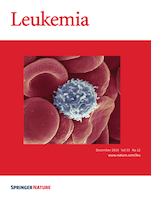
LEUKEMIA
Scope & Guideline
Bridging Science and Practice in Hematology
Introduction
Aims and Scopes
- Molecular Mechanisms of Leukemia:
Research aimed at understanding the genetic and epigenetic alterations that drive leukemogenesis, including the role of mutations and chromosomal abnormalities in different types of leukemia. - Innovative Therapeutic Strategies:
Exploration of new treatment modalities, including targeted therapies, immunotherapies such as CAR T-cells, and combination therapies to improve patient outcomes in various leukemia subtypes. - Clinical Trials and Outcomes:
Assessment of clinical trial results and real-world data on treatment efficacy and safety, focusing on improving survival rates and quality of life for leukemia patients. - Biomarker Development and Monitoring:
Studies aimed at identifying and validating biomarkers for diagnosing leukemia, predicting treatment responses, and monitoring minimal residual disease (MRD) to guide therapeutic decisions. - Patient-Centric Research:
Investigation into the patient experience, including quality of life assessments and the impact of comorbidities on treatment outcomes in leukemia patients.
Trending and Emerging
- Precision Medicine and Genetic Profiling:
There is an increasing focus on precision medicine, with studies exploring the genetic and molecular characterization of leukemia to tailor treatments based on individual patient profiles. - Immunotherapy Advances:
The rise of immunotherapeutic strategies, particularly CAR T-cell therapies and bispecific T-cell engagers, reflects a significant trend towards harnessing the immune system to target leukemia cells more effectively. - Microenvironment Interactions:
Research examining the interactions between leukemia cells and their microenvironment is gaining traction, highlighting how these relationships influence disease progression and treatment responses. - Minimal Residual Disease (MRD) Monitoring:
The emphasis on MRD as a critical prognostic indicator is increasing, with studies focusing on its role in treatment decision-making and long-term patient management. - Longitudinal Studies of Treatment Outcomes:
There is a growing trend in conducting longitudinal studies to assess the long-term outcomes and survivorship issues faced by patients post-treatment, which is essential for improving care strategies.
Declining or Waning
- Traditional Chemotherapy Approaches:
While traditional chemotherapy remains a cornerstone in treating various leukemias, there is a noticeable decline in studies focused solely on these approaches, likely due to the increased interest in targeted and immunotherapy options. - Invasive Diagnostic Techniques:
The use of more invasive diagnostic methods, such as bone marrow biopsies, appears to be decreasing as non-invasive techniques, including liquid biopsies and advanced imaging technologies, gain prominence. - Single-Agent Therapies:
There is a diminishing trend in studies reporting on single-agent therapies as research increasingly emphasizes combination therapies that enhance efficacy and reduce resistance. - Basic Research Without Clinical Correlation:
Research that does not bridge the gap between basic science findings and clinical applications is becoming less common, as there is a stronger push for translational research that directly impacts patient care.
Similar Journals
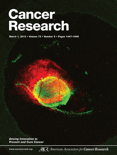
CANCER RESEARCH
Fueling the fight against cancer through rigorous research.Cancer Research, published by the American Association for Cancer Research, is a premier journal in the field of oncology, renowned for its commitment to advancing cancer research since its inception in 1941. With an impressive impact factor reflecting its vital role in the field, this journal consistently ranks in the Q1 quartile for both Cancer Research and Oncology, positioning it among the top 7.5% of journals in these categories. The journal serves as a crucial platform for researchers, professionals, and students to disseminate and gain insights into groundbreaking studies that shape our understanding of cancer biology, prevention, diagnosis, and treatment. While it is not an open-access publication, its rigorous peer-review process ensures that only high-quality research is published, thus maintaining a standard of excellence in the scientific community. With a strong legacy and an ever-expanding influence, Cancer Research continues to be essential for anyone dedicated to the fight against cancer, showcasing cutting-edge research that drives scientific discovery and innovation.
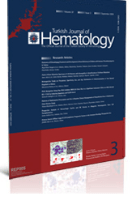
Turkish Journal of Hematology
Unveiling the latest breakthroughs in blood health and treatment.Turkish Journal of Hematology is an esteemed publication dedicated to advancing the field of hematology, producing influential research since its inception in 1999 under the auspices of GALENOS PUBL HOUSE. With an Open Access model, it facilitates widespread dissemination of knowledge, allowing researchers, clinicians, and students to stay abreast of the latest developments in blood disorders and treatments. With an ISSN of 1300-7777 and an E-ISSN of 1308-5263, the journal holds a commendable position in the academic community, evidenced by its 2023 Q3 ranking within the hematology category and its standing at #80 out of 137 in the Scopus database, placing it in the 41st percentile. Covering a wide scope of topics within hematology, this journal serves as a critical resource for disseminating innovative research and clinical practices pertinent to the ongoing challenges faced in this vital area of medicine. With its continuous publication until 2024, Turkish Journal of Hematology remains a beacon for enhancing the understanding and treatment of hematological conditions within the Turkish and global medical communities.
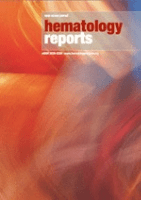
Hematology Reports
Fostering collaboration in hematological research.Hematology Reports is an esteemed academic journal in the field of hematology, dedicated to advancing the understanding of blood disorders and their treatment. Published by MDPI, a leading Swiss publisher known for its commitment to open access since 2009, this journal provides a valuable platform for researchers and healthcare professionals to disseminate innovative findings and foster collaboration within the academic community. The journal features an array of articles ranging from clinical studies to laboratory research, and is indexed in Scopus, where it currently holds a rank of 113 out of 137 in the Medicine - Hematology category, placing it in the 17th percentile. As an open-access journal, Hematology Reports ensures that critical research is accessible to a global audience, supporting the dissemination of knowledge that has the potential to improve patient outcomes. This journal is an essential resource for those engaged in the study and treatment of hematological conditions, encouraging dialogue and the exchange of ideas to enhance clinical practices.
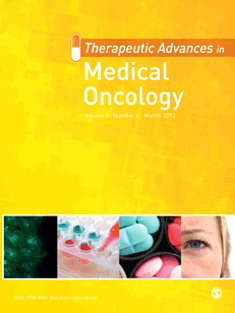
Therapeutic Advances in Medical Oncology
Fostering innovation in cancer therapies worldwide.Therapeutic Advances in Medical Oncology, an esteemed journal published by SAGE Publications Ltd, serves as a critical platform for disseminating high-quality research pertinent to the field of oncology. Indexed under the ISSN 1758-8340 and E-ISSN 1758-8359, this Open Access journal has made significant strides since its inception in 2009, attaining a commendable rank of #78 out of 404 in the Medicine - Oncology category of Scopus, placing it in the top 20th percentile of journals. With its category quartile of Q1 established in 2023, it underscores the journal’s commitment to advancing therapeutic approaches in oncology, making it an invaluable resource for researchers, clinicians, and students alike. Offering unrestricted access to pioneering studies since 2017, it aligns with the global movement towards open science, fostering collaboration and innovation among professionals striving to improve cancer treatment outcomes. By bridging the gap between research and clinical practice, Therapeutic Advances in Medical Oncology plays a vital role in shaping the future of cancer therapy.
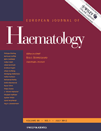
EUROPEAN JOURNAL OF HAEMATOLOGY
Pioneering Discoveries in Blood Disorders and TherapiesEUROPEAN JOURNAL OF HAEMATOLOGY, published by Wiley, serves as a vital resource for experts in the field of hematology, focusing on the latest advancements in blood disorders and therapies. With an ISSN of 0902-4441 and an E-ISSN of 1600-0609, this esteemed journal has been disseminating knowledge since 1986 and continues to thrive, converging its visionary approach through to 2024. Notably, it holds a distinguished Q2 ranking in Hematology and an impressive Q1 ranking in the broader category of Medicine (miscellaneous) as of 2023, highlighting its significant contribution to the scientific community. With a Scopus rank of #45/137 and a 67th percentile in the field, the journal is recognized for its rigorous peer-reviewed research, making it an indispensable publication for researchers, practitioners, and students aiming to stay at the forefront of hematological studies. Though not an open-access journal, it ensures broad accessibility to critical findings via its subscription model, thus fostering an informed and globally engaged audience.

UHOD-Uluslararasi Hematoloji-Onkoloji Dergisi
Elevating insights for a healthier tomorrow.UHOD-Uluslararasi Hematoloji-Onkoloji Dergisi, published by AKAD DOKTORLAR YAYINEVI, is a pivotal journal in the fields of hematology and oncology, catering to an international audience of researchers, clinicians, and students. Since its inception in 2005, the journal has committed to disseminating high-quality, peer-reviewed research, highlighting advancements and challenges in the diagnosis and treatment of hematological and oncological disorders. Registered under ISSN 1306-133X, it serves as a significant platform for scholarly discourse, despite its recent categorization in the Q4 quartile for both hematology and oncology—indicating opportunities for growth and contribution within the scientific community. While currently not Open Access, the journal's indexed contribution to Scopus ranks it within the 12th and 17th percentiles in the domains of hematology and oncology respectively, reflecting its emerging presence within the academic landscape. As it approaches its convergence point in 2024, UHOD strives to elevate its influence, providing invaluable insights and fostering collaborations in the ongoing fight against blood disorders and cancer.
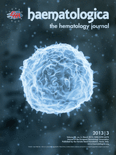
HAEMATOLOGICA
Transforming Hematology Through Knowledge and IntegrityHAEMATOLOGICA, published by FERRATA STORTI FOUNDATION, is a prestigious journal in the field of hematology, recognized for its high impact and contribution to advancing research in this critical area of medicine. With an impressive Q1 ranking in the 2023 category of Hematology and a notable Scopus rank of #12 out of 137, the journal serves as an essential platform for disseminating innovative studies, clinical trials, and comprehensive reviews from 1947 to 2024. Based in Italy, with a commitment to quality and academic integrity, HAEMATOLOGICA fosters collaboration among researchers, practitioners, and students interested in the latest developments and methodologies within hematological science. Although it does not offer open access, the journal ensures that valuable insights are accessible through institutional subscriptions, emphasizing its role in shaping the future of hematologic research.
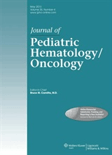
JOURNAL OF PEDIATRIC HEMATOLOGY ONCOLOGY
Transforming lives with cutting-edge insights in pediatric oncology.JOURNAL OF PEDIATRIC HEMATOLOGY ONCOLOGY, published by Lippincott Williams & Wilkins, serves as a vital platform for the dissemination of cutting-edge research and insights in the fields of pediatric hematology and oncology. Since its inception in 1979, the journal has maintained a commitment to advancing knowledge through peer-reviewed articles that contribute to the understanding and treatment of blood disorders and cancers in children. With an impact factor reflective of its academic contributions, the journal is positioned in the Q3 quartile across key medical categories — Hematology, Oncology, and Pediatrics, Perinatology and Child Health — indicating its relevance and influence in the field. While it does not currently offer open access options, the journal remains a crucial resource for researchers, clinicians, and students dedicated to improving pediatric care and outcomes. Researchers are encouraged to contribute to this esteemed journal as it seeks to bridge the gap between clinical practice and research, fostering innovation and improved quality of life for young patients affected by hematologic and oncologic conditions.
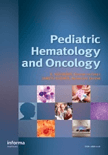
PEDIATRIC HEMATOLOGY AND ONCOLOGY
Championing excellence in pediatric medical advancements.Pediatric Hematology and Oncology, published by Taylor & Francis Inc, serves as a vital platform dedicated to the fields of hematology, oncology, and pediatrics, providing a comprehensive avenue for the dissemination of scholarly research and clinical advancements. With an ISSN of 0888-0018 and an E-ISSN of 1521-0669, this journal has successfully converged its expertise over the years from 1984 to 2024. Ranked in the Q3 category for Hematology and Oncology, alongside a Q2 ranking in Pediatrics, Perinatology, and Child Health (2023), it engages a diverse readership comprising researchers, healthcare professionals, and students eager to explore groundbreaking studies in child health and treatment methodologies. While it currently does not offer Open Access options, the journal is widely cited and recognized, particularly in its specialized fields, fostering a rich environment for dialogue and innovation in the management of pediatric hematological and oncological disorders. The journal is based in the United Kingdom at 530 Walnut Street, Ste 850, Philadelphia, PA 19106, making it an essential resource for those pursuing excellence in pediatric medical research.
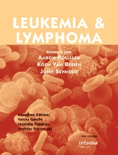
LEUKEMIA & LYMPHOMA
Empowering discoveries in hematology and oncology.LEUKEMIA & LYMPHOMA is a prestigious peer-reviewed journal published by Taylor & Francis Ltd, focusing on vital research in the fields of hematology, oncology, and cancer research. With an ISSN of 1042-8194 and an E-ISSN of 1029-2403, this journal is recognized for its high-quality and impactful contributions to understanding blood cancers, with a notable impact factor reflective of its influence. Since its inception in 1989, LEUKEMIA & LYMPHOMA has continuously provided a platform for researchers and professionals to disseminate their findings, fostering advancements in diagnostic, therapeutic, and clinical strategies related to leukemias and lymphomas. The journal ranks in the Q2 category for both Hematology and Oncology research categories as of 2023, underscoring its commitment to excellence. The journal is based in the United Kingdom and serves a global audience, making it an essential resource for those dedicated to improving outcomes for patients with hematological malignancies.